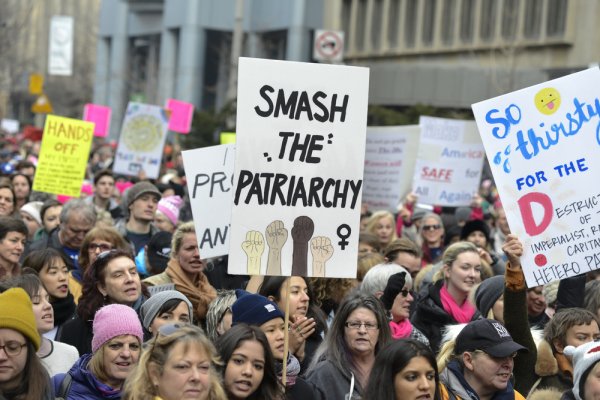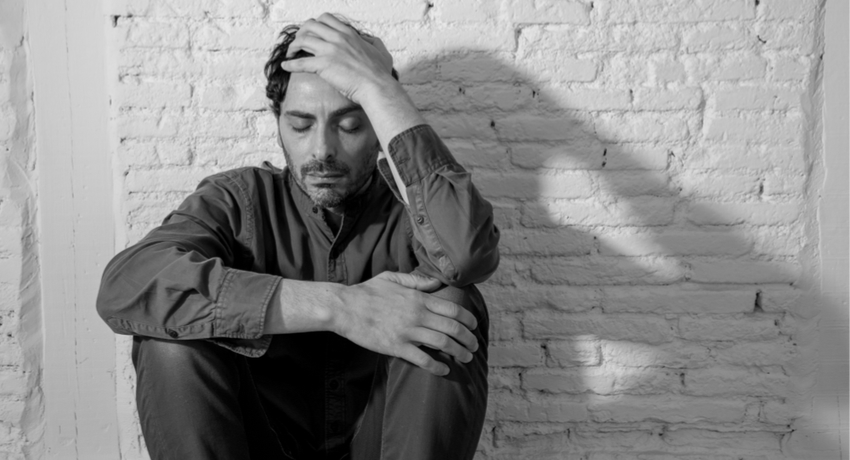Men in our society seem to be struggling. We have higher suicide rates, are more likely to be victims of interpersonal violence, worse health outcomes, suffer from loneliness, die earlier and are more likely to rely on drugs and alcohol to cope.
When combined, these factors have led some to conclude that men are under attack and our increasingly ‘feminised’ society is to blame. This is not a new argument to those who work on masculinity, but recently Dimitri Gonis expressed it again in The Australian, suggesting that men’s falling testosterone levels were indicative of a society that ‘castrated’ men and punished them for their innate masculinity.

Is the feminised society to blame for the fact that men increasingly seem to be struggling?
While Gonis is right to suggest that Australian men are suffering, he fails to appreciate that it is the strength of stereotypical masculinity and not its loss that causes so much suffering among men and boys in our society.
Put simply, dominant models of masculinity make us sick, sad and unwilling to seek health
There now exists a robust body of research on the kinds of harms which affect men more than women or non-binary people. Research suggests that in most instances it is precisely those ‘traditional’ notions of masculinity that Gonis lauds which harm men.
In their 2006 review of men’s access to health care, Smith et al. found that dominant notions of masculinity such as stoicism, independence and valuing of strength meant that men felt seeking care was feminine or failure, particularly when it concerns mental health. This is compounded by men’s tendency to view risky or destructive behaviour as manly, resulting in men’s higher consumption of drugs, alcohol, meat and unhealthy food. Put simply, dominant models of masculinity make us sick, sad and unwilling to seek health.
Masculinity also operates on a structural level; it shapes the institutions and regulates collective practices in ways that harm men. Masculine norms which prioritise violent resolution of conflict and military service make states more likely to go to war. While Gonis laments that the degradation of masculinity has resulted in a situation where the “warrior has lost his battleground” this should be seen as a success for men.
War makes men expendable by appealing to their masculinity; it also leaves them scarred with traumas that cannot be processed due to the association with masculine strength
War makes men expendable by appealing to their masculinity; it also leaves them scarred with traumas that cannot be processed due to the association with masculine strength. These links mean that masculinity demands that men suffer and be laid low to prove their manhood then leaves them unable to deal with the reality of those experiences.
There is one point that I will concede to Gonis, which is that the changing gender norms have been traumatic for many men and resulted in a profound sense of loss among many. The structural conditions around work, marriage and politics are all shifting in ways that weaken men’s dominance.
Work in the United States has suggested that these shifts have left many young men feeling like they exist in a state of limbo. Due to increased casualisation and a breakdown of manufacturing in the Global North, young men often feel that they cannot transition into a stereotypical form of adult manhood.

Young men often feel like they can’t transition into a stereotypical form of adult manhood.
In addition to this, changing norms around dating and sexuality have resulted in a violent backlash from men who are convinced that feminism has ‘gone too far’ and demonised heterosexual men. So, while the small incremental challenges to dominance are no doubt being strongly felt by some men, this is less reflective of real oppression than a result of the truism that when you’re accustomed to privilege, equality feels like oppression.
If we are to end the many harms which particularly affect men, we need to break free of patriarchal masculinity, not retreat into defensive myth-making about the past ‘glory days’ when the men were men and the women were women
Gonis’ argument about the emasculation of men, while not new, is unsupported by the rich body of evidence on men and masculinity which has been collated over the past thirty years. If we are to end the many harms which particularly affect men, we need to break free of patriarchal masculinity, not retreat into defensive myth-making about the past ‘glory days’ when the men were men and the women were women. This requires that we create new ways to find meaning, satisfaction and intimacy without trotting out the same old tired tropes of heterosexual manhood that got us into this mess.




